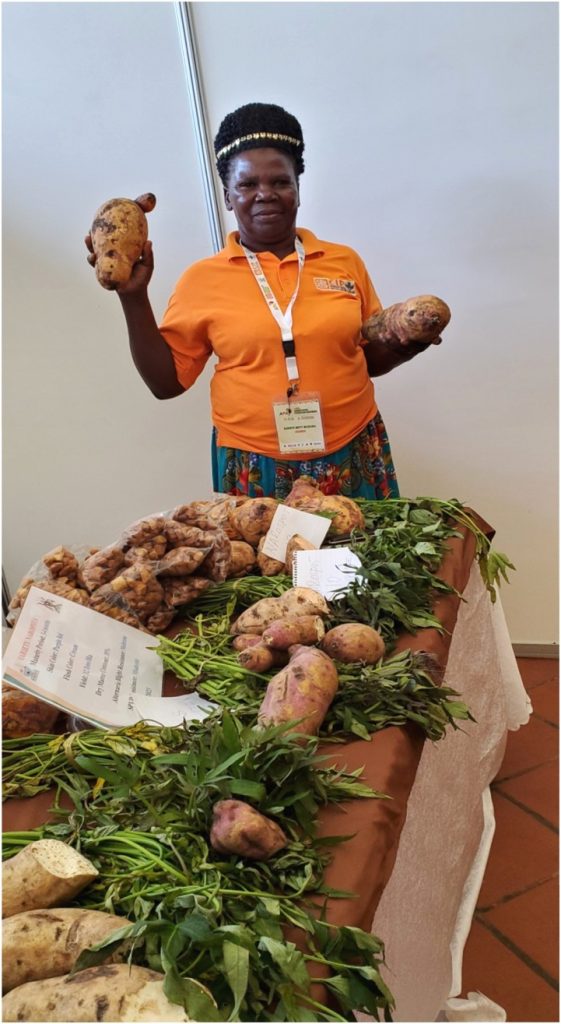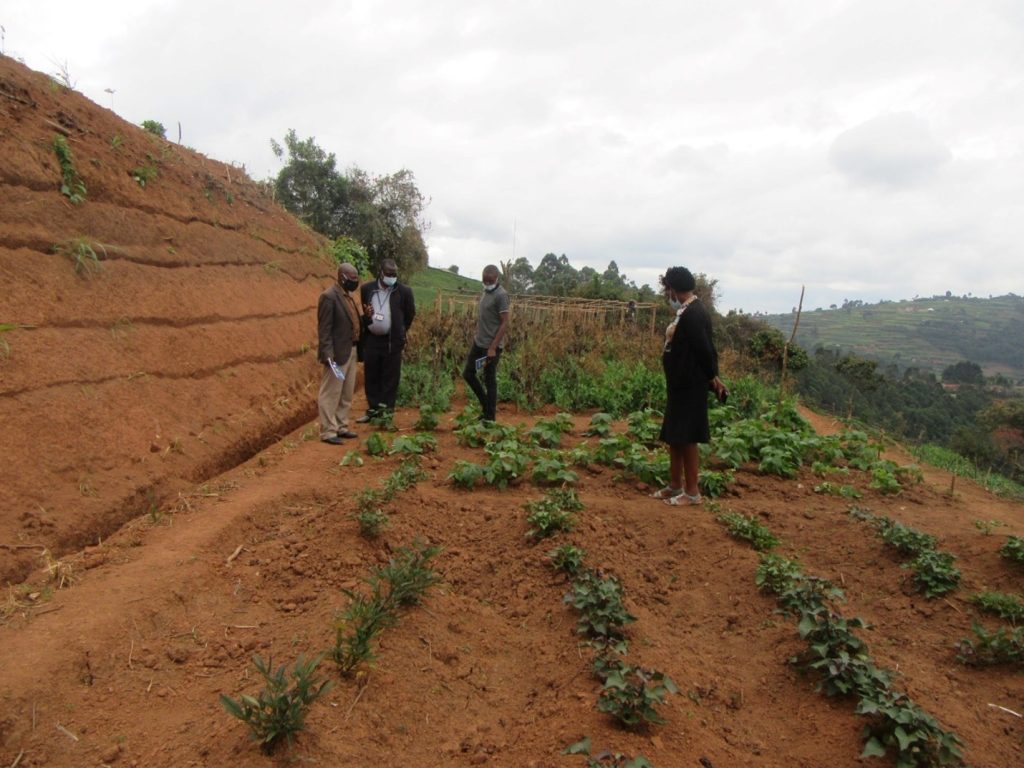By Sarah Mawerere
Potato is a staple food in many parts of the world. Normally in two types, potato is underground tuber that grows on the roots of the potato plant.
Though often grouped under the same name, the potato and the sweet potato are two distinct crops. They both have unique taste and nutritional benefits.
The potato, commonly known as the Irish potato, is a starchy tuber widely used in making chips, crisps and is cooked for food. On the other hand, the sweet potato, is known for its naturally sweet taste and is in orange, white or purple colours. Despite their differences, both play an important role in food security and local diets across the world.
Why Potatoes Matter in Africa
Potatoes are increasingly vital to Africa’s food security and economic development. As one of the continent’s most important crop, potatoes offer high yields, short growth cycles, and adaptability to agro-ecological zones. They are efficient in water use and land utilization, making them suitable for regions facing shortage of land and climate variations.

In Africa, potatoes are grown across countries like Kenya, Nigeria, Rwanda, Uganda and Tanzania. However, some countries beyond Africa that grow potatoes include; China (the world’s largest producer), India, Russia, German, Netherlands and France among others.
In Uganda, potatoes are a staple in highland areas such as Kabale, Kisoro, and the Rwenzori Mountains. The country produces over 168,000 metric tons annually, with exports surpassing imports, indicating a growing regional demand. However, average yields remain below potential, highlighting the need for improved farming practices and access to quality inputs.

Uganda Hosts The 13th African Potato Association Conference
The thirteenth African Potato Association Conference has concluded at Munyonyo in Kampala with much emphasis on collaborative efforts to sustain potato production n the Africa region.
Held on the Theme: Fostering Climate Smart Cropping Systems for Sustainable Potato and Sweet Potato Value Chain, the conference was held from May 26th to May30th 2025 at Munyonyo in Kampala. This followed the 12th African Potato Association (APA) conference that took place from June 27th to July 1st, 2022 in Malawi’s capital, Lilongwe themed: “Harnessing Potato and Sweet Potato Innovations for Resilient and Healthier Agri-food systems”.
It brought together over three hundred delegates from across Africa and beyond, to discuss innovative ways of adding value to potato as well as promotion of the whole potato sector.
The African Potato Association (APA) is a non-profit organization established in 1983 in Lusaka, Zambia. Its primary mission is to promote the production and utilization of potato and sweet potato across Africa, recognizing their vital roles in food security, nutrition, and income generation. APA serves as a central hub for information exchange, fostering collaboration among scientists, policymakers, and stakeholders to advance research, innovation, and sustainable agricultural practices related to these crops.
In a speech delivered on his behalf, Uganda’s Minister for Agriculture, Animal, Industry and Fisheries (MAAIF) Frank Tumwebaze, underscored the government’s commitment to enhancing value chains through the development of improved, disease-resistant, and high-yielding varieties, in collaboration with the National Agricultural Research Organization (NARO) and the International Potato Centre (CIP).
The Minister also advocated for the adoption of climate-smart cropping systems to ensure sustainable production and competitiveness in the region, Samson Bugama noted how important it is for governments to focus more on the development of the agriculture sector, which he said is where livelihoods are derived. He also applauded his government’s support to the agriculture sector, more so to potato production which is key in Nigeria.
In the same vein, Commissioner of Agriculture and Rural Development, Plateau State of Nigeria
The conference was hosted by the National Agriculture Research Organization (NARO) in collaboration with key partners including the International Potato Center (CIP), Korea Program on International Agriculture (KOPIA), World Food Program (WFP) and Food and Agriculture Organization (FAO).
Potato and sweet potato are not just food crops; they are actually food security and income generating crops for farmers and economies. They are nutrition good crops that can guard against malnutrition.
It underscored the critical role of climate-smart agriculture in ensuring the sustainability of potato and sweet potato value chains across Africa. The conference brought together scientists, policymakers, and farmers to explore innovative strategies for adapting to climate change while enhancing productivity.
Interview conducted by Sarah Mawerere of UBC with the experts elucidate this.
The experts in the interview are; Dr. BERNARD YADA Principal Research Officer National Crops Resources Research Institute Namulonge. Dr, ROLAND AGABA Potato Breeder at Kachwekano Zonal Agricultural Research and Development Institute and Dr, Kyenpiya Eunice Deshi, University of Jos, Nigeria.
Growing potatoes through the climate resilient approach that includes planting clean seed, good farming practices and continuity will enable Africa to produce potatoes sustainably.

Key Discussions At The 13th African Potato Association Conference
The conference addressed several critical areas to enhance the potato and sweet potato sectors:
- Crop Improvement: Developing superior varieties that meet evolving farmer and consumer preferences, focusing on traits like pest resistance and nutritional value.
- Seed Systems: Promoting public-private partnerships to improve access to high-quality seeds, a significant bottleneck in many regions
- Pest and Disease Management: Addressing current and emerging threats through integrated pest management strategies and resilient crop varieties
- Regenerative Agri-Food Systems: Scaling up crop intensification and diversification to boost farmer productivity and income while ensuring environmental sustainability
Role in Advancing Potato Cultivation In Africa
Stakeholders play a crucial role in advancing potato and sweet potato cultivation in Africa by contributing to research, production, distribution, capacity building, market access, and policy support.
Dr. Srini Rajendran of CIP (International Potato Centre) alluded to the importance of developing the potato seed system.
Specific roles to this:
1. Government Agencies
- Policy development: Provide enabling policies for agricultural investment, land use, seed regulation, and extension services.
- Infrastructure investment: Improve rural roads, irrigation, and storage facilities.
- Subsidies and funding: Support access to inputs like improved seeds and fertilizers.
2. Research Institutions and Universities
- Crop improvement: Develop high-yielding, drought- and disease-resistant varieties.
- Agronomic practices: Provide research on best farming practices suitable for different agro-ecological zones.
- Nutrition research: Study and promote bio-fortified varieties, such as orange-fleshed sweet potatoes (OFSP) rich in vitamin A.
3. NGOs and Development Partners
- Farmer training: Conduct community-level education on sustainable agriculture, pest management, and post-harvest handling.
- Technology transfer: Facilitate adoption of innovations through field demonstrations and digital tools.
- Gender and inclusion: Promote the participation of women and youth in potato value chains.
4. Private Sector (Agro-input dealers, processors, exporters)
- Seed multiplication and distribution: Ensure availability of certified, quality planting material.
- Processing and value addition: Invest in technologies that convert potatoes and sweet potatoes into chips, flour, or snacks, reducing post-harvest losses.
- Market linkages: Facilitate access to domestic and international markets.
5. Farmer Organizations and Cooperatives
- Collective action: Strengthen bargaining power for inputs and produce.
- Knowledge sharing: Share indigenous knowledge and innovative practices among members.
- Access to finance: Help members access credit and microloans through group schemes.
6. Consumers
- Demand creation: Shape market trends through preferences for healthier, locally sourced food.
- Awareness: Participate in campaigns that encourage consumption of nutritious crops like sweet potatoes.
Uganda’s National Agricultural Research Organization (NARO), in collaboration with the International Potato Center (CIP) and other partners, has developed high-yielding, pest-resistant potato and sweet potato varieties suitable for agro-processing. These efforts aim to enhance food security and provide income-generating opportunities for smallholder farmers
The conference also highlighted successful models like the Zombo District Farmers Association (ZODFA), which, through partnerships with other organizations, has improved access to quality seeds, training, and markets, leading to increased productivity and reduced post-harvest losses.
Also, highlighted the success of farmers’ cooperative in Busoga -the BUSECO (Busoga Commercial Seed Products and Marketing Cooperative Society) multiplying sweet potato vines and supplying the vines to farmers in Kamuli, Buyende, Kayunga and other surrounding districts. Not forgetting the Kigezi Screen House and Progressive Framers’ Association that is multiplying the potato (Irish potato) seed.
Looking Ahead
The 13th African Potato Association Conference underscored the critical role of potato and sweet potato in Africa’s quest for food and nutritional security, economic development, and climate resilience. By fostering collaboration among stakeholders and investing in research, infrastructure, and market development, Africa can unlock the full potential of these crops to nourish its growing population and stimulate economic growth.























